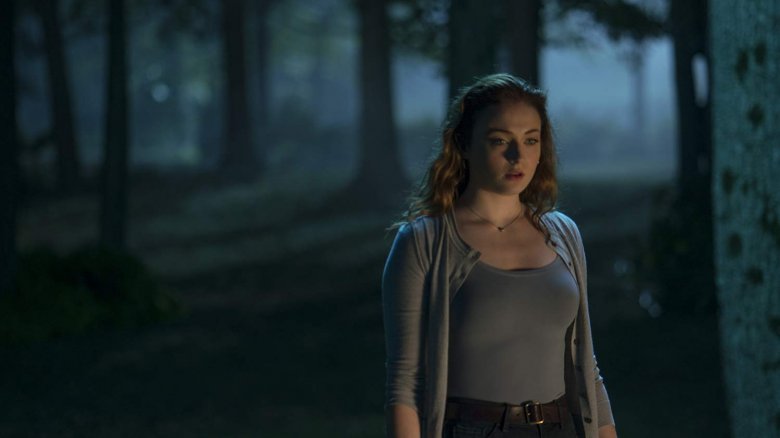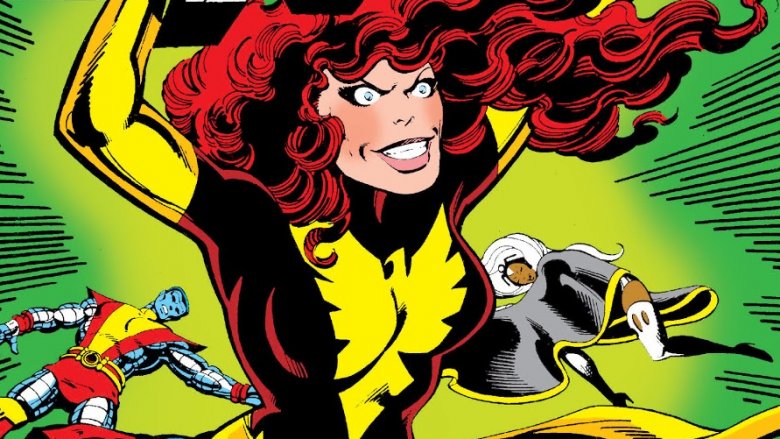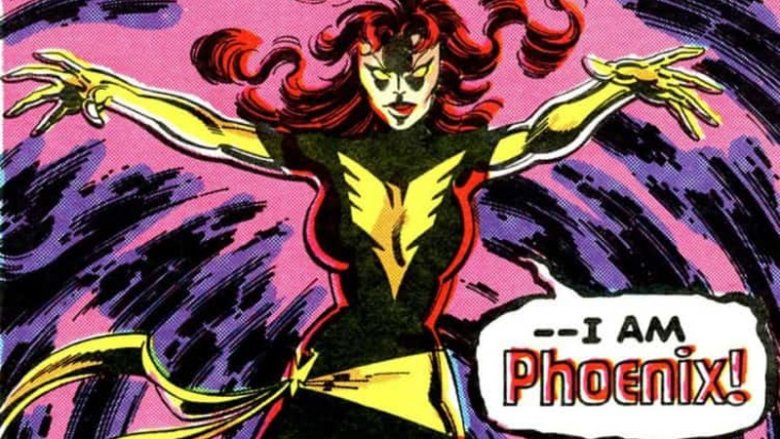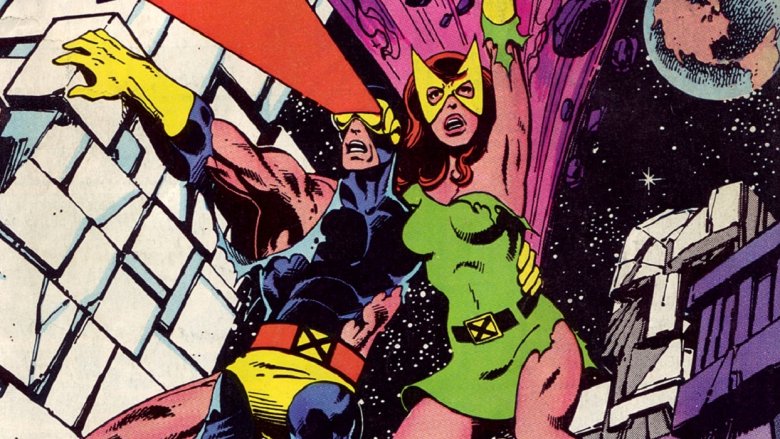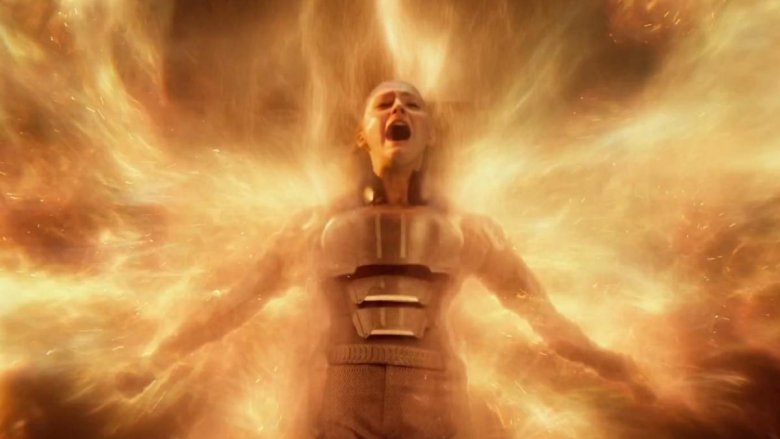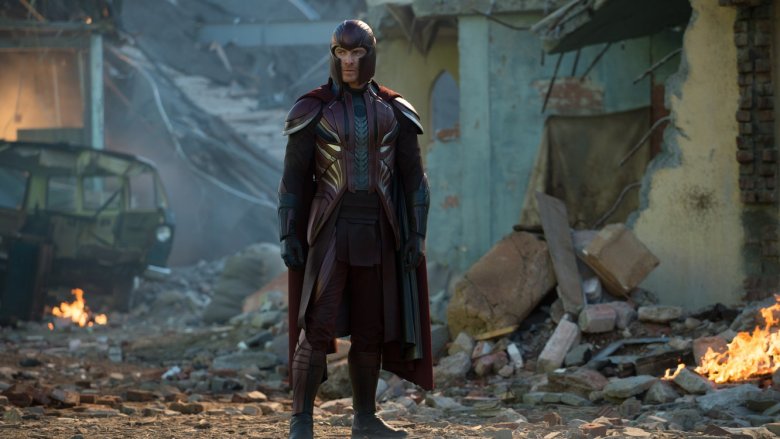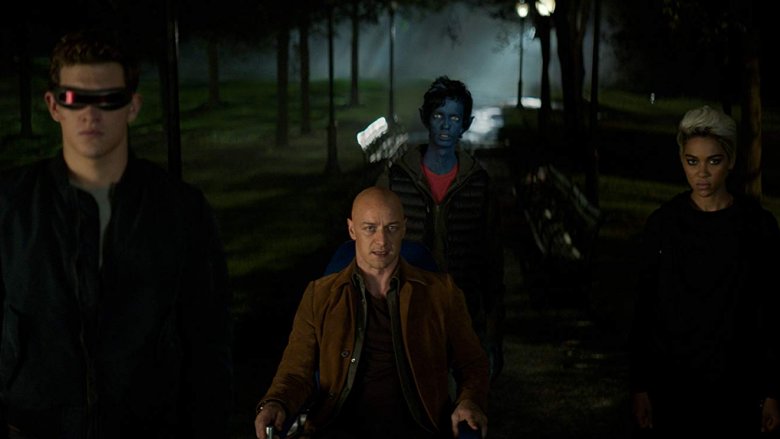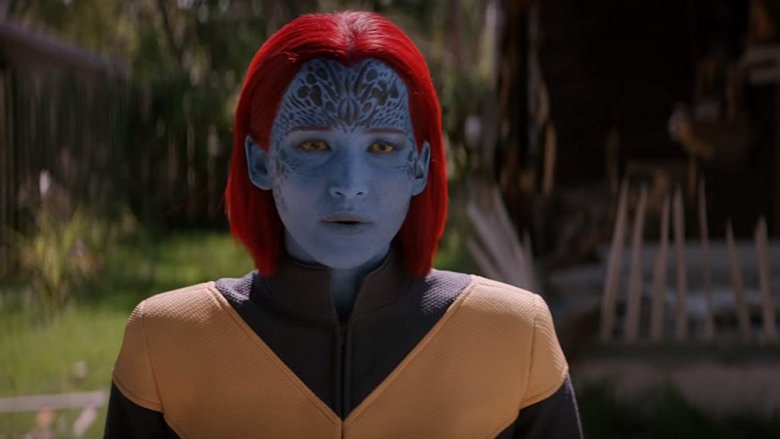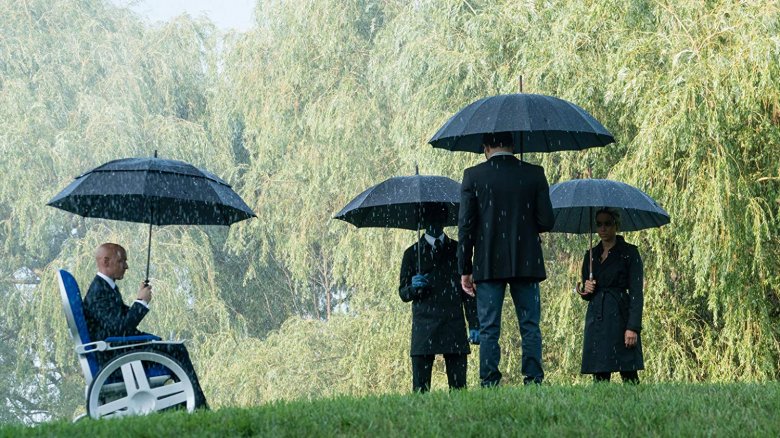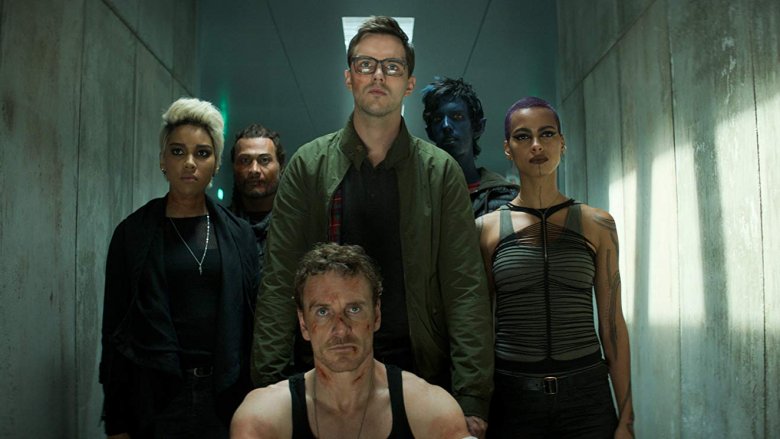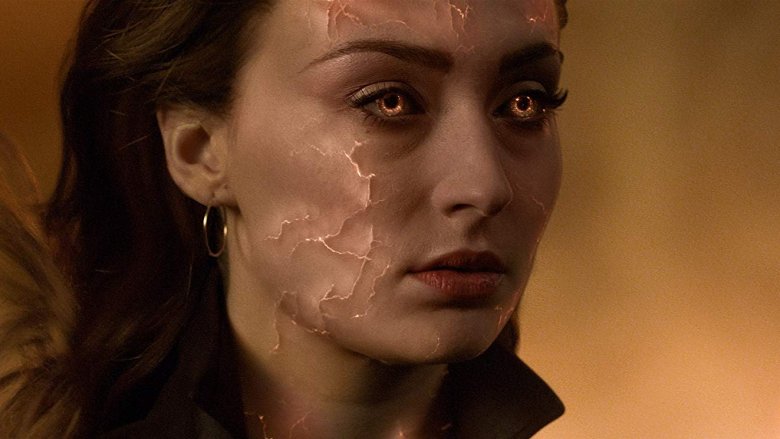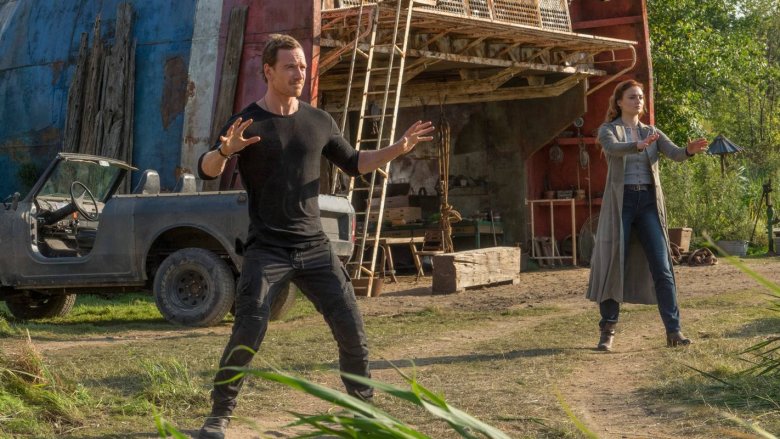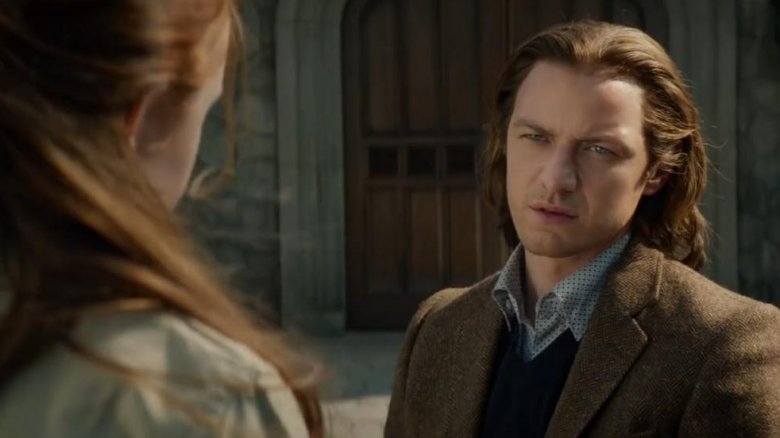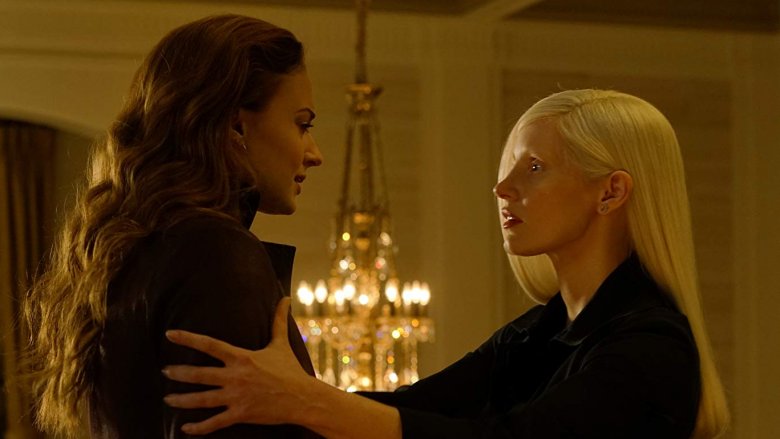Read This Before You See Dark Phoenix
This summer, superhero movies will face the end of an era, and we're not talking about Avengers: Endgame. Dark Phoenix, the final film in Fox's nearly two-decade-long X-Men saga, is finally set to hit theaters on June 7th. In the 19 years since X-Men arrived, these characters have jumped forwards and backwards in time, gotten older and younger, been recast, retconned, resurrected, and so much more. Still, it's all been part of one larger story. Now that story's coming to an end with writer/director Simon Kinberg's new film, which places Jean Grey (Sophie Turner) at the center of an adaptation of the most famous X-Men story ever.
You might already know that, but what else do you need to know ahead of Dark Phoenix? Do you need a summary of the source material? What about a quick refresher on where the characters were the last time we saw them? What about a few hints as to what you can expect from this version of the Dark Phoenix saga? We've got you covered. Read this before you see Dark Phoenix.
The beginnings of a saga
The Dark Phoenix Saga, as it's come to be known through years of reprints and adaptations, is perhaps the most famous and widely referenced storyline in the history of X-Men comics, though its various adaptations have often taken a very loose approach to translating it to the screen. The setup for the story began in Uncanny X-Men #101 in 1976 with the X-Men embarking on a mission to space, during which Jean Grey encounters what seems to be a deadly solar flare. In that moment, instead of dying, she reaches the full potential of her Omega-level mutant powers. These powers are so great that they even allow her to briefly transcend having a body at all.
Jean later returns to her body, though when she reunites with the X-Men she has a new look, a greatly enhanced set of powers, and the name "Phoenix." For a while this was somewhat of a status quo in the X-Men comics, as Phoenix seemed to be able to hold back her own darker urges and maintain a power level that allowed her to remain a valuable ally to the X-Men. That would not last.
An evil alter ego
The Dark Phoenix saga proper was kicked off three years later in Uncanny X-Men #129, when creators Chris Claremont and John Byrne decided it was time to truly activate Jean Grey's full potential, not just as an incredibly powerful being, but as a supervillain.
This begins with the evil mutant Mastermind dominating Jean's mind, projecting visions into her head that eventually lead her to assume the evil identity of "The Black Queen" and rebel against the X-Men. Jean briefly joins the Hellfire Club before realizing the deception that put her there, strikes down Mastermind, and then eventually chooses to abandon all ties to her former identity as "Jean Grey." Phoenix defeats the X-Men and takes to space, but her journey through the cosmos leaves her so drained that she consumes an entire solar system to restore her power, inadvertently causing mass genocide on nearby planets.
A council of cosmic leaders determines that Phoenix is a threat greater than even Galactus and must be put down. Meanwhile, Jean has returned home, where the X-Men work to restore her "Jean Grey" identity. They seem to succeed, but the universe demands a price be paid.
The last stand
Though the X-Men are able to bring Jean's original personality to the forefront once again, there must be consequences for Phoenix's destruction. The Shi'ar empress Lilandra orders her Imperial Guard — a group of the best fighters in the galaxy — to abduct the X-Men and put Phoenix to death. Charles Xavier instead challenges the Shi'ar to a trial by combat: the X-Men versus the Imperial Guard, with the fate of the Phoenix at stake.
A lengthy battle ensues on the Blue Area of the Moon, but the Imperial Guard eventually defeat the X-Men. In the chaos, Jean struggles to keep control as the Dark Phoenix fights to overwhelm her body once again. Before this can happen, she uses a piece of alien machinery to kill herself after professing her love for Cyclops.
Jean Grey has come back from the dead more than once since this saga ended, but its impact remains clear among X-Men fans and within X-Men continuity. Jean Grey's struggle to retain her humanity even while tempted by the godlike powers within her remains one of the most emotionally satisfying and gripping X-Men stories, and now a major adaptation of it is finally coming to the big screen.
When we last left our heroes...
Dark Phoenix will complete the saga of films that began with X-Men: First Class and continued through Days of Future Past and Apocalypse. Each of these films took the team through a different decade, with Dark Phoenix finally arriving in the 1990s, at a time when Charles Xavier and his adoptive sister Raven, a.k.a. Mystique, are leading a new team of X-Men that now includes mainstays like Cyclops and the star of this film, Jean Grey.
The chief consequence of Apocalypse that the film will be dealing with is no doubt Jean's understanding of her own powers, which she finally unleashed in full at the end of the last film as the only way to stop the evil mutant En Sabah Nur. Jean held nothing back, and it led to a victory for the X-Men, but it also released something frightening which is about to be enhanced by a mission to space that will bring her in contact with the film's version of the Phoenix Force, a cosmic entity that will greatly increase her powers.
Lingering questions
Jean will be the driving force of Dark Phoenix, but she's far from the only major character left over from Apocalypse to think about. The team at the X-Mansion now includes a reformed Ororo Munroe, a.k.a. Storm, as well as the speedster mutant Quicksilver and the teleporter Nightcrawler. Based on what we can glean from the trailers, this team seems to be in relatively stable shape as the film begins, with Xavier and senior members Mystique and Beast leading the way for the younger crew.
There's another mutant element at work in the wake of Apocalypse, though, and that's Magneto. Erik Lehnsherr allowed himself to be drawn in by En Sabah Nur's power, thinking he could use it as a means to make the world anew for mutantkind, but he was ultimately repulsed by the destruction, and helped the X-Men to defeat him. Now, after helping to rebuild, he's started his own little mutant community.
There are bigger questions hanging over all of this, of course, beyond the allegiances of individual mutant characters. What's changed about the world since Apocalypse? Who is still feeling the trauma of it? How will they bring those emotions to this new conflict? We'll have to watch the film to know for sure.
The end of an era
If Dark Phoenix had stuck to its original release date in the fall of 2018, there might be room to speculate on exactly how the team will continue after the events of the film, but as the film's release got pushed further and further back, it became clear that it was racing against the clock to even remain a Fox film. Now, Dark Phoenix is one of two mutant films (the other one being New Mutants, which is still in somewhat of a release limbo despite being on the calendar for August 2) left to release from the Fox catalog before the X-Men film rights are fully in the hands of The Walt Disney Company, which just completed its purchase of 21st Century Fox. With that in mind, speculation has been rampant over just what will become of these X-Men. Is it over for them, or will they find new life one day in the Marvel Cinematic Universe?
According to Fox executive Emma Watts, Dark Phoenix will be a "perfect sendoff" to the X-Men team Fox has built for the last two decades, signaling to fans everywhere that this will indeed be their last ride. It's the end of an era.
A major death
The character of Mystique — the shapeshifting mutant antihero who's sided with both Magneto and Xavier over the years — has been a part of X-Men franchise lore since the beginning. In the first film trilogy, she was played by Rebecca Romijn, and was firmly on the side of Magneto. X-Men: First Class took the character in a different direction, and drafted Jennifer Lawrence to play her.
Instead of beginning as a villain, Mystique was established as a young woman who grew up with Charles Xavier as his adoptive sister. Through First Class, Days of Future Past, and Apocalypse, her loyalties have shifted, but by the end of Apocalypse she was back on Xavier's side, helping to train young recruits like Cyclops and Jean Grey. Now, with Dark Phoenix, it's her time to go. Mystique's death in the film was revealed in the trailers, as a way of making it clear that Phoenix means business.
"Well, the thought process behind that was to primarily show that this is a movie that is unlike other X-Men movies," writer/director Simon Kinberg said. "It's a movie where shocking things happen, where intense, dramatic things happen," he said. "People don't just fall off buildings and dust themselves off and walk away. There's a reality to this movie and a consequence to this movie. Even more than that, it was to show that Jean/Dark Phoenix is genuinely a threat to everyone, including the X-Men."
Why it was delayed
Dark Phoenix was originally set to be released in November of 2018 before that release date was dropped in favor of Valentine's Day, 2019. In September of last year Fox announced that they'd moved the release date yet again, this time setting the film for its current date of June 7. So, what happened with the delays? According to director Simon Kinberg, a number of factors pushed the film back.
The final delay came when visual effects delays on Dark Phoenix coincided with Gambit sliding out of its summer spot. Kinberg explained, "We looked at that date versus the February 14th date, the studio did and we did, we felt like that June date was a bigger opportunity for us globally. More screens, more IMAX screens, a better chance to play in China... Specific for us, it is an opportunity to be a bigger movie day-and-date globally."
Why you shouldn't worry about reshoots
Last year, as its release date began to shift around, word began swirling that Dark Phoenix might be facing as many as three months of reshoots in Montreal. If that was true, it meant a major retooling for the film, and that could have pointed to studio disappointment with what Kinberg and company turned out.
In the end, that turned out to be a false claim. Dark Phoenix did undergo reshoots last summer in Montreal, but the real schedule turned out to be more like two-and-a-half weeks. Why? Well, Collider reported at the time that the reshoots were primarily geared toward strengthening the film's third act with additional shots and perhaps a couple of new scenes.
Though fans often hear the word "reshoots" and begin to fear the worst about upcoming blockbusters, a period of a couple of weeks to rework certain parts of the film late in production is actually a somewhat standard procedure for a great many major releases.
Why it's going darker
The film's title is Dark Phoenix, and anyone familiar with its source material will tell you that's not a misnomer. This is a film about power driving someone to absolute destruction, and even though the last film, Apocalypse, was already rather dark in places for an X-Men film, we should expect even more of a tonal shift this time around.
"This one is a much more serious film about the internal struggle of Phoenix and Jean, so it's a dramatic film," said Evan Peters, who plays Quicksilver. "There's nothing very comedic about it, other than the few moments that are in there. I think it's gonna be a powerful one. It's Dark Phoenix. I think it's gonna be darker than we're used to. It's gonna be a change, but it's gonna be fun for everybody."
The film's trailers, which feature everything from extreme angst on the part of Jean Grey to the outright death of one the franchise's most well-known characters, are certainly driving Peters' point home. We shouldn't necessarily expect the film to be completely bleak, but we should expect some darkness.
Another Marvel Comics locale
In the Dark Phoenix trailers, we've seen glimpses of Magneto and Jean spending time in what looks like a kind of jungle commune, with makeshift structures and sparse signs of civilization. According to Kinberg, this is an early version of Genosha, one of the most important locations in X-Men comics, and a key component to the history of Magneto in particular. Originally introduced as a kind of mutant apartheid state (it's off the southeast coast of Africa), the nation eventually became Magneto's domain, and in the film it will serve as a place where he can attempt to create a kind of promised land for mutantkind.
"Jean finds him there because what's happening to her is making her do destructive things, and she doesn't know why," Kinberg explained. "The only person she's known who has done destructive and lethal things in the past but came back from it is Magneto. She feels he alone can give her answers because he's lived both sides. He's lost control and killed and hurt people, some of whom he even loved, and yet he's also found a measure of peace and that's what she's searching for."
We could have seen it sooner
Though we're now getting a film that not only bears the title Dark Phoenix, but seems fully intent on adapting the story for the screen, it's not the first time filmmakers have turned their eyes toward such a project. The first trilogy of X-Men films ultimately carried out its own version of the Dark Phoenix story, though in a much more abbreviated way, with Jean Grey seemingly perishing at the end of X2: X-Men United and returning as a force of destruction in X-Men: The Last Stand.
Even though we got that, screenwriter Zak Penn (who has a story credit on X2) told The Hollywood Reporter that what we almost got was something more like a direct Dark Phoenix Saga adaptation for X2, which he pushed back against for fear that the film was going too far as only the second installment in the franchise. "It was too soon to go into the Phoenix story and it was too soon to get cosmic," Penn explained. "I would say that's probably the biggest contribution I made was pushing it in that direction."
Instead, X2 ended up hinting at Dark Phoenix, and doing its own version of the classic X-Men comics story God Loves, Man Kills, in which the team must stop a plot by William Stryker to eradicate mutants from the Earth.
One character shrouded in mystery
Dark Phoenix is an X-Men sequel, which means we generally know who most of the characters are already, and what their alignments and powers are. Even in a film like Apocalypse, which introduced several new mutant characters, we still had a pretty good idea of who and what they were, because we had the comic books to draw from. That's not the case with this film in one particular instance: the character played by Jessica Chastain.
We've known Chastain is a part of the film for quite some time now, but we still don't have an official name to give her character. We also don't have a one-to-one comparison to a character from the comics that we can draw from, and that's apparently by design. According to Kinberg, she's an "alien" character with many different inspirations.
"Her character is an alien. She comes from another planet. When you see the entity that enters Jean in space is not a solar flare — it's a cosmic force," he said. "For those that know the comic, they know what the force is. Chastain's character is drawn and has been seeking out that cosmic force, and it leads her to Earth and to Jean. It's a force she either wants to control or destroy."
